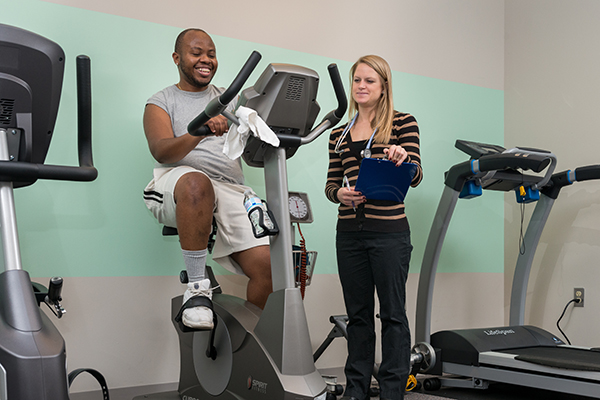


Healthier vessels
Study to address exercise and vascular function in chronic kidney disease
11:05 a.m., Jan. 6, 2014--Chronic kidney disease, which affects more than 20 million adults in the United States, carries with it a high risk of cardiovascular disease. In fact, even a small loss of kidney function can double a person’s risk of developing cardiovascular disease.
“Studies have shown that patients with chronic kidney disease are more likely to die of a cardiovascular disease such as a heart attack than of end-stage kidney failure, so we’re very interested in studying vascular function in this population,” says Dave Edwards, associate professor in the Department of Kinesiology and Applied Physiology at the University of Delaware. “Once we have a better understanding of the reasons for poor blood vessel function, we can develop better interventions.
Research Stories
Chronic wounds
Prof. Heck's legacy
Edwards recently received a $1.5 million grant from the National Institutes of Health to examine the effects of exercise on vascular function in people with chronic kidney disease.
Research participants ranging in age from 18 to 75 years will undergo treadmill and stationary bike training three times a week for 12 weeks. The effects of this intervention will be assessed based on pre- and post-test measures of several physiological variables.
“Exercise is not routinely prescribed for patients with kidney disease, and we hope to demonstrate that exercise training improves vascular health in these patients,” Edwards says. “The results of preclinical research on animals is very promising — we saw good results with a fairly minimal amount of exercise.”
“Direct evidence of the beneficial effects of exercise training on vascular function in patients with chronic kidney disease will provide the rationale to recommend exercise training,” he continues. “The results will also serve as the foundation for larger-scale trials designed to examine the effects of exercise training on cardiovascular risk, ultimately advancing public health initiatives in this disease.”
Edwards has been studying the mechanisms of vascular dysfunction in patients with chronic kidney disease for several years. Although these mechanisms are still not entirely understood, research like the current exercise-based project is important for its potential not only to improve renal and cardiovascular outcomes but also to shed light on why kidney disease is often accompanied by poor cardiovascular health.
Article by Diane Kukich
Photo by Evan Krape









